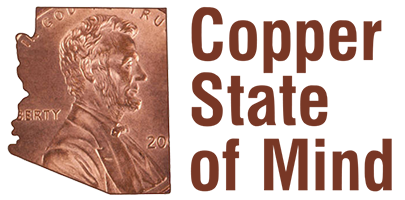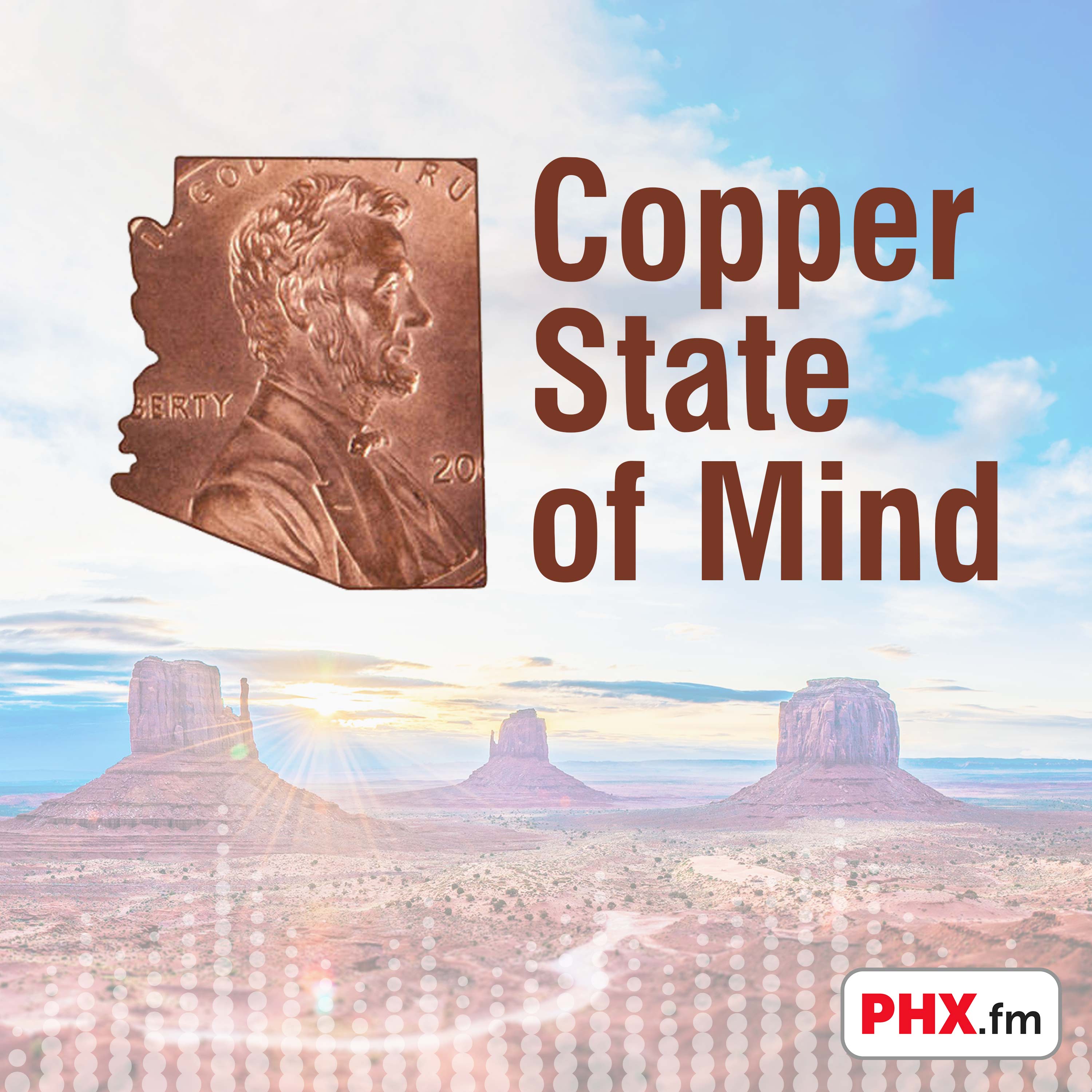Rebuilding Trust in Government, NGOs, and the Media: Is It Even Possible?
Abbie and Adrian talk about the 2025 Edelman Trust Barometer report, which reveals rising global grievances and declining trust in institutions. They explore how businesses, governments, and NGOs can rebuild trust amidst economic and social challenges.
The discussion centers on the role of transparent communication, responsible leadership, how generational differences affect perceptions of trust and "hostile activism," as well as what people say institutions should do to improve societal trust.
Read the transcript and notes for this episode on our website.
Key Takeaways
- The Edelman Trust Barometer reveals a global decline in trust across institutions, with grievances rising significantly.
- Business leaders are being called upon to spearhead trust restoration efforts, but this must be a collaborative endeavor involving governments, NGOs, and the media.
- Generational differences exist in perceptions of activism, with younger populations more inclined to view hostile activism as a necessary response to grievances.
- There is a pressing need for transparent and honest communication by institutions to combat misinformation and rebuild public trust.
- Consumers of news must also engage responsibly by seeking diverse perspectives and developing informed opinions.
Follow the podcast
If you enjoyed this episode, please follow Copper State of Mind in Apple Podcasts, Spotify, or any other podcast app. We publish new episodes every other Friday. Just pick your preferred podcast player from this link, open the app, and click the button to “Follow” the show: https://copperstateofmind.show/listen
Need to hire a PR firm?
We demystify the process and give you some helpful advice in Episode 19: "How to Hire a Public Relations Agency in Arizona: Insider Tips for Executives and Marketing Directors."
Credits
Copper State of Mind, hosted by Abbie Fink and Dr. Adrian McIntyre, is a project of HMA Public Relations, a full-service public relations and marketing communications firm in Phoenix.
The show is recorded and produced by the team at Speed of Story, a B2B communications firm, and distributed by PHX.fm, the leading independent B2B podcast network in Arizona.
If you enjoyed this episode, you might also like the PRGN Presents podcast, hosted by Abbie Fink, featuring conversations about PR, marketing, and communications with members of the Public Relations Global Network, "the world’s local public relations agency.”
Transcript
Polarization, divisiveness, insecurity, frustration, alienation, and upsets. Seems like the world has become defined by its grievances. Almost nobody anywhere is happy with the state of things, whether economic or political or at the level of their family, their neighborhood, their community.
How do we know? Well, the Edelman Trust Barometer has come out. This is the 25th anniversary of this report, and they tell us that around the world, having surveyed 33,000 people in 28 different countries, grievances are on the rise and trust in all institutions is on the decline. Abbie, what's on your mind?
Abbie Fink:So this is going to be a very uplifting conversation today. Last episode we talked about mentorship, and one of the key elements of a good mentoring relationship was trust, right? That you could confide and share your innermost thoughts and concerns and what was troubling you, and that the other would receive that information and share honest feedback, but in a very trustworthy, non-judgmental sort of way. And that one-on-one communication was critical to the success of that relationship.
Well, when we look at what the Edelman Trust Barometer is talking about, which is really individuals trust in institutions and for a variety of reasons, there is a significant amount of distrust and a significant amount of airing of the grievances, if you will, around our expectations of the businesses that we do business with and what our expectations are. And for communicators, in particular, we really need to recognize this viewpoint that our audiences, you know, just a general sense of what our audiences are feeling about the types of organizations that we represent and the importance, continued importance, of establishing trust, being a trustworthy business, a trustworthy brand. And then what we have to do to daily live up to those maybe somewhat unrealistic expectations that people are putting onto the businesses. But it's a critical part of what we have to communicate and recognize in this data.
As you said, it's the 25th year that Edelman has produced this document, and with the primary focus being on trust, it's been the theme line throughout their entire data gathering on this, these documents. And over time, the shift in who we trust and the shift in how we trust and now how we express our distrust in a very public way.
And I think there's a lot of things to be concerned about in what as a society we now accept and actually value when it comes to expressing concerns about our businesses, our government, the media, et cetera.
Adrian McIntyre:What's interesting about this approach, about this study and about the data that they collect, is they really are taking a multifaceted look and using the issue of trust and as the organizing principle.
But it touches on many broad themes that have to do with our everyday life, from the economy to political institutions, businesses, nonprofits, medical professionals. And they ask the question, is trust in these core institutions rising or falling?
And what's interesting is some people, for example, let's just take the issue of elections. Do elections improve trust for people who celebrate the outcome of an election? You might think the answer is yes. But interestingly enough, across the globe elections fail to improve trust in government institutions.
Now, I don't mean, listener, you personally. I mean collectively, the overall sense of trust in government is going down and is going down significantly. In fact, in the last year, only two countries saw a significant increase in trust, and that's Argentina and South Africa. Everywhere else, that trust went down. And when you start to look at the factors that they're touching on here, why is that? What's going on?
Issues like job security, additional economic pressures, possibility of a looming global recession, changes in technology affecting people's sense of job security. There's a rise in automation. There's what we would call workforce development. Are people being trained for roles in the new emerging economy?
With AI and other technological breakthroughs around the world, there is an unprecedented global decline in trust in employers. So just looking at it through that narrow lens of how people feel about the companies that employ them, across the board, it's down.
In fact, interestingly enough, they've got a little graph in here. There's lots of data in the report. We'll link to it in the notes. Every year since 20 18, trust in employers has gone up. It was at a peak in 20 24, and it dropped over three points from 20 24 to 20 25. A significant decline in employer trust. Now, it's worse in some countries than others--South Korea being the lowest, Indonesia being the highest. But around the world, we're seeing negative numbers. The trend is going in the wrong direction.
Abbie Fink:Right. And what do we do about that? Right. Where does the opportunity to change that conversation come in?
What is leading those individuals to say they distrust the company that they work for and I'm still working there?
Because, as you say, economic issues, job loss, other things. "I've got a good job, I might not like the company, I might not trust my boss, but at least I get, you know, I'm working, I'm getting a paycheck every Two weeks. My family has got a roof over their heads."
But even the idea of discussing the concept of trust as it relates to these big ideas, you know, distrust in the government. So, you know, one could argue that we don't like politicians, we don't trust the politicians. But I think we have until maybe recently, trusted in the process of how we, at least here in this country, how we elect our leadership. We have trusted in our electoral process.
Trust in the process has eroded. We know that as a fact. And therefore residually, we don't trust the individuals even more so because we can't be sure that they were put into office in a fair and honest way. We've, of course, proven over time that that is not in fact the case. But if you already have a bit of distrust for the system and then you start to hear things that further amplify that, you know, you can see how this can continue to happen.
And one of the things that this particular year looks at in this barometer is grievance versus trust and what the impact of a grievance is on trust. Before we hit the record button, I was saying that I trust the pharmacy that I am going to get my prescription from, but I have a grievance with them right now because everything is delayed and I can't get it. And I'm getting multiple phone calls while I wait for them to tell me. Now, I trust that I'm going to get it. I trust that it's going to be in the right dosage and such, but I have a grievance with the process. And so what I do with my grievance, then, do I share it? Do I go on social and slam the company?
You know, this is all the things that are in the hands of the consumer now to make our opinions known. And, you know, we have certainly seen over time and call it the last eight to 10 years, that the ability for an individual or a group of individuals to publicly express their concerns in a maybe hostile environment is increasing.
And the approval and the findings saw that 4 in 10 approved that hostile activism is a way to go. That's troubling to me. I believe in activism. I believe in advocating for what's right and what's wrong and taking a stand. But I am not at all in the camp that threatening violence, committing violence, attacking people in the online space is how we can make things better. That doesn't sit well with me at all.
Adrian McIntyre:And just to double-click on that one indicator, 4 in 10 see hostile activism as a viable means to drive change. We should point out that that's not equally divided across age groups. In fact, the young adult group, ages 18 to 34, over 50% believe that hostile activism is appropriate and maybe even necessary, versus only 26% of people 55 and up.
And by hostile activism, they're talking about attacking people online, intentionally spreading disinformation, threatening or committing violent action. When you've got 40% of the global population seeing that as the appropriate response, we do have a problem.
Abbie Fink:And I think from a generational perspective, that age group has only seen this type of activism at the upper end of that age group. They were voting for the first time eight years ago, could be, you know, 12 years ago. So they were seeing the change in the way that the political process was working, the way that we were learning about information.
The concept of disinformation is a relatively new word in our vernacular. I mean, there's always been what might have been considered disinformation, propaganda, other things, but it has become a conversation piece. And this age group, 18 to 34, only knows that. The older generation, the 55 plus, has seen it evolve. They have watched the change in our expectations and how we trust our institutions.
And maybe the idea of trusting wasn't even discussed, but now it is such a prominent part of conversation and the balancing act that is having to happen. We talked about this on Copper State of Mind a couple years back.
In that conversation, it was talking about the importance of business and what businesses need to do to address societal issues. And with few exceptions, most felt that, you know, business needed to lead the conversation on breaking the cycle of distrust.
And that individuals seeking out employment were expecting that their CEOs, their owners, their presidents were going to be vocal on issues and that they needed to feel comfortable being a bit more controversial. If you push forward now into the 20 25 barometer, it's now, we're not only saying you should, but we're granting you permission to do so.
We are saying CEOs need to take action where you believe you can take and make a difference, and that the expectation needs to be there.
And if the reason not to do it is because you believe it's going to harm your stakeholders, the trust barometer says you should do it anyway, that it's important that you have the ability to make an impact, derive the reason to do it. But the businesses are saying that's all fine and good, but we can't be out there by ourselves doing it.
So if we are going to make a change in our societal fabric, if we're going to address cultural concerns, if we're going to address the economic impact and try to rebuild trust or rebuild optimism in our institutions, it can't just be business alone.
It has to be individuals, it has to be our government, it has to be our media, it has to be the, you know, the, the non governmental organizations and, and all of us play a role in addressing the concept and, you know, taking ownership of what we're saying, standing by it, and be willing to suffer the consequences of being out in front of what might be a controversial issue and controversy being in the eyes of the beholder. Right. We all have different opinions about what is considered controversial. But that's a big ask. It's a really big ask and I think it's an important one. But it's a big one to ask, you know, that business be responsible for, but recognizing that others have to be part of that conversation in order for it to actually make a difference.
Adrian McIntyre:I think what you're pointing to is something that for us professionally and for many people in our audience, should be framed as a communication problem. The simple fact of the matter is that a vast majority of people believe that their leaders are lying to them. And they think of this in terms of government leaders, business leaders and journalists and reporters.
And part of the reason you might think that is because some of the government leaders have been saying the journalists are lying and the journalists have been saying that some of the business leaders are lying. And you know, it's just kind of a mess.
And while we believe firmly that the overwhelming majority of people in government, in business, and in journalism, as we've talked about before, are good people trying to do their best, there's this increasing perception on the part of the general population--and again, not in the United States of America alone, but around the world. This is a global survey. There's a perception that those with power are seeking to exploit it, that the wealthy are taking more than their fair share, that a lot of the problems in the world are because of the lies being told by the people in power, that discrimination, prejudice, racism are making people unsafe, that their leaders aren't protecting them against the job insecurity or the personal insecurity that comes of living in this tumultuous and uncertain world.
And so the real question then for our audience, and even for us, is with all these grievances causing trust in institutions across the board to be diminished, business leaders can't turn this around on their own. Because the word wouldn't even get out without media. The nonprofit organizations, who are in many cases seen to be do-gooder, save-the-world types, they're not trusted either in this environment. Medical professionals are not trusted in this environment. This has all been eroded.
We want to turn this around, obviously. We want the world to do better, right? The question is, how does that happen and how does it get communicated? That's to me the most interesting and thorny problem here, because if you don't believe anything you hear from anybody, even if things do get better, how would you know?
Abbie Fink:Very valid point. And it puts a lot of that responsibility, which, you know, I firmly believe that there is responsibility from consumers of news in this as much as there is those that produce the news, right? We have to be responsible consumers of news. We have to find multiple sources for information. We have to seek, we have to want to seek out other views, other opinions, and form our own opinions based on what I hope is a widespread, varying viewpoints, various opinions on particular topics. And then, and maybe only then can the idea that things can change starts to come through.
But your point is well taken, you know, if no one in the forest heard the tree fall, did it make any noise? So if we don't have a mechanism to share what is happening, and that's not necessarily just sharing everything that's good news and looking through rose-colored glasses, we do have to report the challenges and the difficulties and the things that are happening. But it can be overwhelming.
You you can see why you will turn off the evening news and never to watch it again when all you are seeing is negative, negative, negative, or your perception of negative. Because again, if we agree that that's all in the perception, the institutions themselves--the business, the government, media, NGOs, nonprofits, fill in the blank--need to own their role in that, in the responsibility and to every level that they possibly can be as open and transparent about things.
In good times and in bad times, we have to figure out a way to reengage the concept of trust that allows the differences of opinion to live in a healthy way. We aren't all going to agree about everything, and we shouldn't, but we should be able to have a healthy debate and a debate on ideas, not debate the person. I don't have to agree with you, Adrian, on everything you say, but I can still like you and we can still have a good conversation. I can be uncomfortable about a viewpoint that you have, but still enjoy having a conversation with you. And we have to figure out how to move back that way.
And if communications professionals, those of us that are tasked with sharing this information, guiding our leadership in how to properly, appropriately, with transparency, put information out there and be willing to accept what might be a negative outcome. It's a lot, it's a lot to talk about.
I just had a conversation earlier with a client that has some very strong opinions about some of the things that are happening and the impact that some of the things that are happening at the federal level will have on their organization.
As an individual, she wants to be as loud and proud about her opinions and where it needs to go, but she has a board of directors to contend with, and she has donors that she needs to be concerned with, and she has an employee base that may not also agree in the same way.
We spent a considerable amount of time talking about the pros and cons of being public with a particular opinion. And she's of the mindset that it will do more damage to not say something, to be back in the shadows and let whatever's going to happen and not have a voice in the discussion. And she is willing to be in front of her board of directors with that opinion and willing to be public about the stance that the organization and her will be taking.
Time will tell and whether her one voice will make a significant difference. I think it will amongst her peers and it will amongst the clientele that they serve. And you have to start somewhere. You know, if taking action has consequences as leaders, in whatever capacity that is, we have to be willing to, to do that. And then, and I think only then, do we start to see trust return, grievances decrease, and a more optimistic view of what's happening here and what's going to be happening for the next generation.
Adrian McIntyre:Just to end this conversation on a positive note, or at least a direction to pursue in the future, the report also tells us what people around the world say would make things better. So with regard to government, any government, people say "we want the government to deliver results that benefit me." Specifically, they want the government to do things that have a positive impact on their life. They want the government to "understand what people like me need and want."
With regard to NGOs, non-governmental organizations, the nonprofit sector, people want them to fight divisiveness and repair the social fabric. Actually be a unifying force that brings people together. They say that would remove a lot of the grievance in that area.
For the media--our primary concern and focus on this podcast--put the facts first. In other words, they want news organizations to be focused on telling people what they need to know rather than attracting a big audience. They want news organizations to inform the public rather than support an ideology.
And, man, at least here in the United States, that means that none of the major news organizations are doing what people want, because they are focused on attracting a big audience and increasingly supporting a specific ideology.
Finally, with regard to business, as you said already, they want business leaders to speak out and take action about the things that matter most. And the takeaway from this is that even though trust in business has declined significantly and quite concerningly, business remains the most trusted institution of all the ones surveyed: the government, the media, the nonprofits, and the medical professions. That alone ought to be an indication to leadership in business and in nonprofits what direction we need to take.
Adrian McIntyre:Thanks for listening to this episode of Copper State of Mind. If you enjoyed the conversation, please share it with a colleague who might also find this podcast valuable. It's easy to do. Just click the "Share" button in the app you're listening to now to pass it along. You can also follow Copper State of Mind in Apple Podcasts, Spotify, or any other podcast app. We publish new episodes every other Friday.
Copper State of Mind is brought to you by HMA Public Relations, the oldest continuously operating PR firm in Arizona. The show is recorded and produced by the team at Speed of Story, a B2B communications firm in Phoenix, and distributed by PHX.fm, the leading independent B2B podcast network in Arizona.
For all of us here at Speed of Story and PHX.fm, I'm Adrian McIntyre. Thanks for listening and for sharing the show with others if you choose to do so. We hope you'll join us again for another episode of Copper State of Mind.





